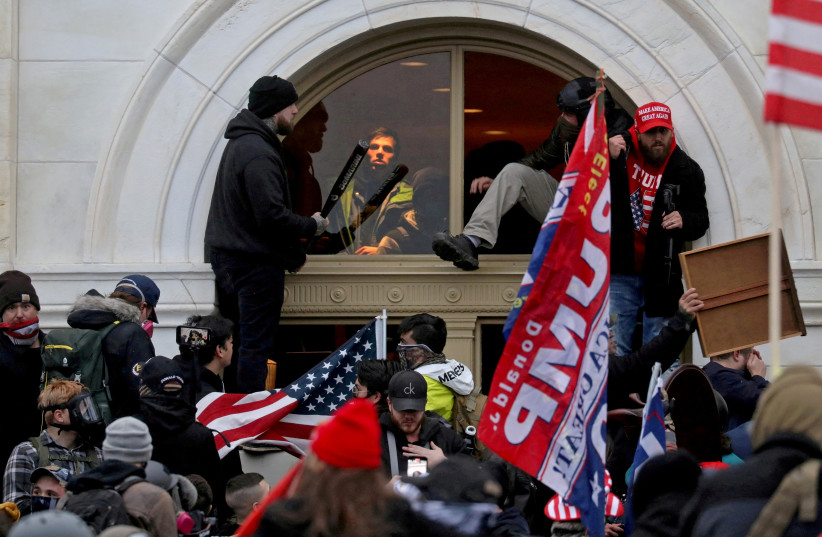Donald Trump on Monday turned to the US Supreme Court as he presses his claim - rejected by lower courts - that he is immune from being prosecuted for trying to overturn his 2020 election loss because he was serving as president when he took those actions.
Trump, the first former president to be criminally prosecuted, asked the justices to put on hold the US Court of Appeals for the District of Columbia Circuit rejecting his immunity claim. A March 4 trial date for Trump in federal court in Washington on four criminal counts pursued by Special Counsel Jack Smith was postponed, with no new date yet set.
Trump's lawyers asked the justices to halt the trial proceedings pending their bid for the full slate of judges on the D.C. Circuit to reconsider the case, and, if necessary, an appeal to the Supreme Court.
Trump is the frontrunner for the Republican nomination to challenge Democratic President Joe Biden in the Nov. 5 US election. Biden defeated Trump in 2020.
Three of the nine Supreme Court justices were appointed by Trump, cementing a 6-3 conservative majority on the top US judicial body. The charges brought by Smith in August 2023 came in one of four criminal cases now pending against Trump, including another one in a Georgia state court also involving his efforts to undo his 2020 loss.
US District Judge Tanya Chutkan, presiding over the case brought by Smith, in December rejected Trump's immunity claim, ruling that former presidents "enjoy no special conditions on their federal criminal liability."

"Whatever immunities a sitting president may enjoy, the United States has only one chief executive at a time," Chutkan wrote, "and that position does not confer a lifelong 'get-out-of-jail-free' pass."
After Trump appealed, the D.C. Circuit on Feb. 6 also rebuffed Trump's immunity claim, prompting him to seek relief at the Supreme Court.
Multiple cases have rejected Trump's appeal for immunity
"We cannot accept that the office of the presidency places its former occupants above the law for all time thereafter," the court wrote in its decision.
During arguments before the D.C. Circuit in January, one of Trump's lawyers told the court that even if a president sold pardons or military secrets or ordered a Navy commando unit to assassinate a political rival, he could not be criminally charged unless he is first impeached and convicted in Congress.
Prosecutors have argued that Trump was acting as a candidate, not a president, when he pressured officials to overturn the election results and encouraged his supporters to march to the Capitol on Jan. 6, 2021, to pressure Congress not to certify Biden's victory.
The indictment secured by Smith accuses Trump of conspiring to defraud the United States, obstructing the congressional certification of Biden's electoral victory and conspiring to do so, and conspiring against right of Americans to vote. If reelected, Trump could seek to pardon himself of any federal crimes.
Trump last October sought to have the charges dismissed based on his claim of immunity from criminal prosecution related to actions taken by a president while in office. Trump, president from 2017 to 2021, has regularly made sweeping claims of immunity both while in office and since leaving the White House.
The US Supreme Court in 2020 spurned Trump's argument that he was immune from a subpoena issued as part of a state criminal investigations while he was president.
The Supreme Court in December declined Smith's request to decide the immunity claim even before the D.C. Circuit ruled - a bid by the prosecutor to speed up the process of resolving the matter. The justices opted instead to let the lower appeals court rule first, as is customary.
Separately, the Supreme Court heard arguments on Feb. 8 in Trump's appeal of a ruling by Colorado's top court that barred him from the state's Republican primary ballot, based on language in the US Constitution's 14th Amendment, after finding he engaged in an insurrection related to the Jan. 6, 2021, attack on the Capitol by his supporters.
